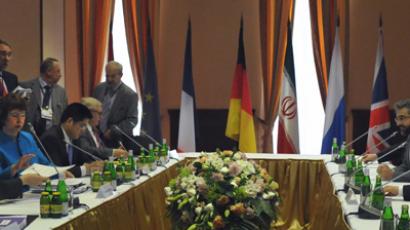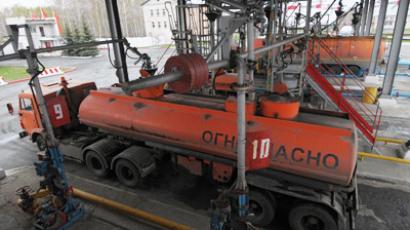Iran’s oil halo growing thinner: US drops China and Singapore from sanction list
In a last minute call, the White House spares Beijing and Singapore of financial penalties under Iran oil sanctions. The US says the two countries have “significantly reduced” their purchases of the Persian country’s crude.
“Today, I’ve made the determination that two additional countries, China and Singapore, have significantly reduced their volume of crude oil purchases from Iran,” US Secretary of State Hillary Clinton said on Thursday – the day the US sanctions against Iran and its customers took legal effect. The sanctions, which deny access to US banking systems for Tehran’s oil customers, will no longer apply to China’s and Singapore’s “financial institutions for a potentially renewable period of 180 days,” Hillary Clinton added. This brings the total number of “cleared” countries to 20. Exemptions for South Korea, Turkey and India – all major importers of Iranian crude – were announced on June 11 and were earlier granted to Japan and countries across Europe.
Countries exempted by the US from Iran sanctions list: China, India, Japan, Malaysia, South Korea, Singapore, South Africa, Sri Lanka, Turkey and Taiwan have all received waivers from the US in exchange for “significantly reducing” oil imports. Ten European countries have also received waivers, but they will not be allowed to import Iranian oil starting on July 1.
On top of this, as Hillary Clinton declares that China appears to be curbing its oil imports from Iran, figures show that those imports are actually at record highs this year.Lawyer and activist Bitta Mostofi told RT it is not a matter of China reducing oil imports from Iran because of the threat of US sanctions.“There has been a dispute between the Chinese and the Iranian government over (oil) pricing,” recalled lawyer and activist Bitta Mostofi. “Many analysts have said that it has nothing to do with the sanctions,” she added.The International Energy Agency says joint US and EU attempts to hamper Iran’s crude exports have already shrunk Tehran’s oil trade by 40 per cent compared to 2011. This was somewhat alleviated by spikes in the frenzied market, which kept prices over $100 per barrel till April. But, with Saudi Arabia and other nations boosting their oil production, prices dropped to lows unseen since 2008.The EU’s embargo is to take full effect on July 1. It may prove rather harmful to Iran as it also applies to European maritime insurers. South Korea has admitted the EU sanctions would force a full halt of Iranian oil purchases, while Japan, which now buys about a fifth of Iran’s exports, is expected to approve unprecedented government guarantees to insure shipments.The US and many EU countries suspect Iran of attempting to build nuclear weapons. Iran denies the allegations, insisting its nuclear program is focused on energy and medical purposes. The sanctions announced by the US and EU this past winter have not yet forced Tehran to capitulate from its alleged ambitions. Still the country insists the sanctions should be lifted before it starts considering wrapping up its uranium enrichment program.Bitta Mostofi revealed that because of the sanctions “Iran now faces extremely high, some say 20 to 60 per cent of inflation rate in the country. There is a shortage of medicine and medical equipment.” “It is ordinary people, not government, that are affected by the sanctions,” Bitta Mostofi stressed.














